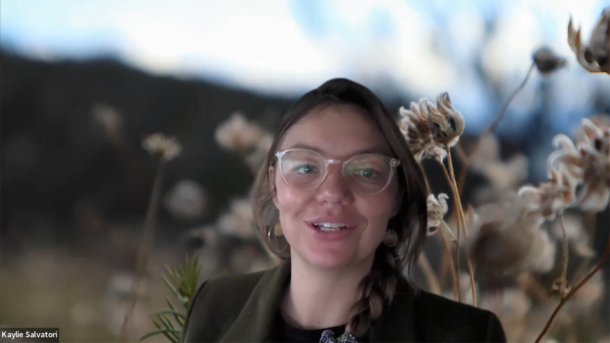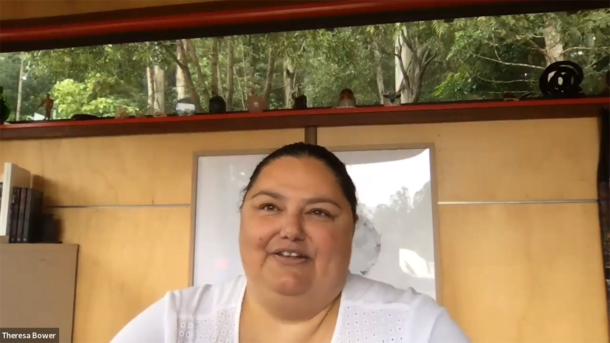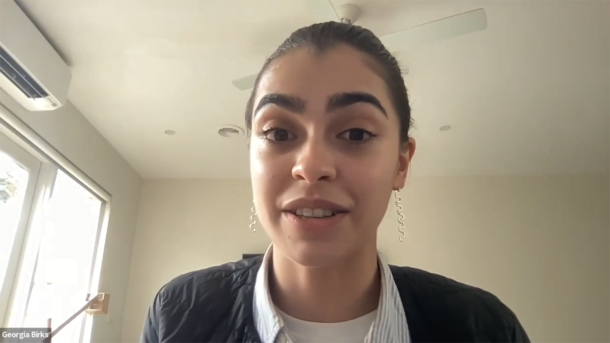Stripping the Colonial Veneer: Revealing Blak Places challenges ongoing processes of colonisation, reveal Blak places, and discuss ways to better support Indigenous built environment practitioners. Watch this great yarn with with Kaylie Salvatori, Theresa Bower and Georgia Birks.
Get started by reading the session description below and watching the trailer – Kaylie Salvatori on cities steeped in colonialism.
preview
Please log in to your account to purchase access to the full recording, or to use a code. If you do not have an account, you can register here.
1 formal point on completion of the CPD questions.
Refer to the Learning Objectives for Deadly Djurumin Yarns.
Purchase access to the full recording via Vimeo on demand. (See below for Parlour Collective and concession codes, along with CPD details.)
Stripping the colonial veneer
The built environment as it stands tells a very colonial story – and this process of colonisation is ongoing. Western culture is still all-too-often positioned as the norm, as ‘neutral’ or ‘objective’, with anything outside this framework described as ‘diversity’ – that is, not dominant, not imbued with colonial / patriarchal / imperialist values.
This Yarn explores these challenges, explaining that, until the values and processes imbued in design processes change, colonisation continues and Indigenous people do not have culturally safe places. This becomes even murkier when Indigenous practitioners are engaged in the process of development without structural change to that process. They are effectively coerced into their own colonisation and, simultaneously, asked to carry a huge cultural burden.
All-too-often, Indigenous built environment practitioners are expected to know things they don’t know, to speak for people they can’t speak for, and feel pressured to put an ‘Aboriginal veneer’ on a design. The constant need to reiterate the importance of co-design processes in the face of these expectations creates an enormous additional burden, and is particularly challenging for newly employed graduates.
This Yarn helps to educate non-Indigenous professionals about the Blak places that lie behind the colonial veneer. In doing so, it aims to help create a more supportive environment for young Indigenous professionals, one in which they can develop their skills and abilities and flourish as practitioners.



Georgia Birks – get involved!
Theresa Bower on the importance of taking time.
Tickets
- $38 Parlour Collective (To access this use the promo code Collective at checkout).
- $50 General
- $11 Concession (anyone who needs it – students, those not working, part-timers etc. To access this use the promo code Concession at checkout.)
Purchase access through Vimeo on demand, or via the video embedded above.
We operate on an honesty system. Please choose the ticket price that matches your circumstances. If you are not yet a part of the Parlour Collective, find out more and join here!
The proceeds will help support Deadly Djurumin activities. If you represent an Aboriginal organisation or a teaching institution, please contact Parlour to obtain access at no cost.
CPD
One hour of formal CPD on completion of the CPD questions. See here for the series Learning Objectives.
Once the questions are completed, you will receive an email from Google forms with your responses. Please keep this – it provides the evidence of attendance and completion. Please note, separate CPD certificates will not be issued. If you can’t find the email, remember to check your spam folder.
The Deadly Djurumin Yarns are a collaboration between Deadly Djurumin and Parlour. This Yarn was recorded live online on Friday 1 July 2022.This yarn was recorded online on 1 July 2022.





















